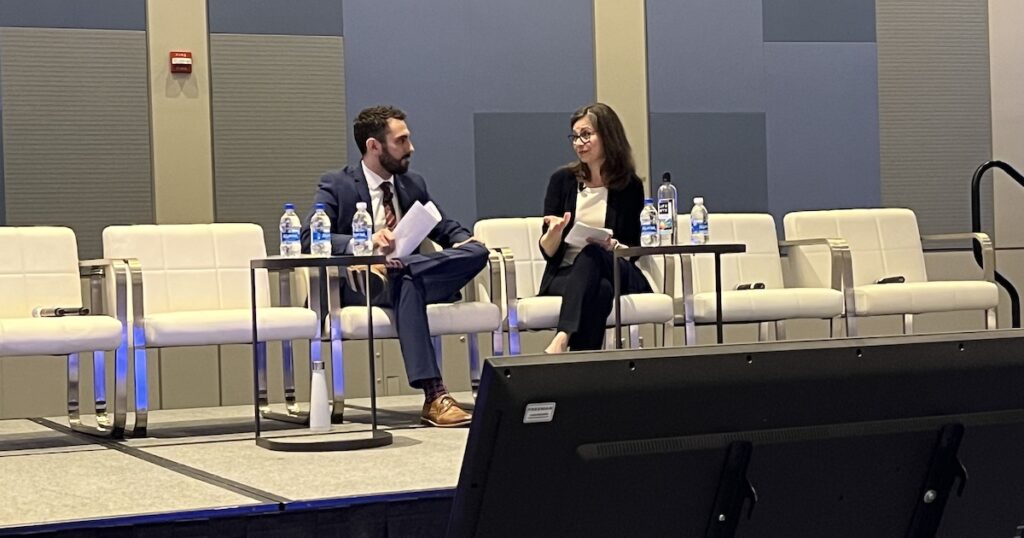
After years of slow movement advancing telehealth, remote patient monitoring and other digital health technologies, the landscape changed rapidly during the COVID-19 pandemic, said Jodi Daniel, managing director of Crowell Health Solutions.
At HIMSS23, Daniel, who previously served as the founding director of the Office of Policy in the Office of the National Coordinator for Health Information Technology, discussed the policy and regulatory landscape three years later as the public health emergency draws to a close.
“All of a sudden, all the challenges, all barriers just changed overnight, which was amazing. But those were all done on waivers. And there are a lot of legal restrictions to covering, either providing or paying for, telehealth services or remote care services,” she said. “So once the public health emergency ends, all those waivers go away.”
When it comes to telehealth, Congress still needs to take action to make flexibilities permanent.
“Congress has extended the deadline and has enabled most of those exceptions to those waivers to remain in place through 2024. So they’re kicking the can down the road,” Daniel said.
Privacy and security has also become a more prominent issue in the wake of last year’s Supreme Court decision that overturned Roe v. Wade. Some experts raised concerns that patients’ health data could be used against them in states where abortion has become illegal.
The Office for Civil Rights in HHS recently proposed new rules that aim to protect patient privacy when it comes to reproductive health data, but Daniel notes they might not be enough.
“What it really does is it seeks to prohibit disclosure to law enforcement. It doesn’t get into these other problems though: if it affects somebody’s treatment in a hospital or if they refer somebody to social services to see if they’re an unfit parent. That might not be protected by the proposed rule,” she said.
Recent actions by the Federal Trade Commission against digital health companies GoodRx and BetterHelp mark another new privacy landscape. The agency fined both companies earlier this year, alleging they had shared consumer health data with third parties for advertising purposes. Daniel said she expects the FTC will continue to get involved.
Artificial intelligence has also gained momentum. Daniel argues AI has potential to significantly improve care delivery, but there are risks too.
“Just because you can do something doesn’t mean you should do it,” she said. “And making sure that the ethical and legal issues that surround AI are being addressed as the technology advances, which is going to really require investment of time and effort. And companies that are developing AI schools are pushing ahead really quickly.”

